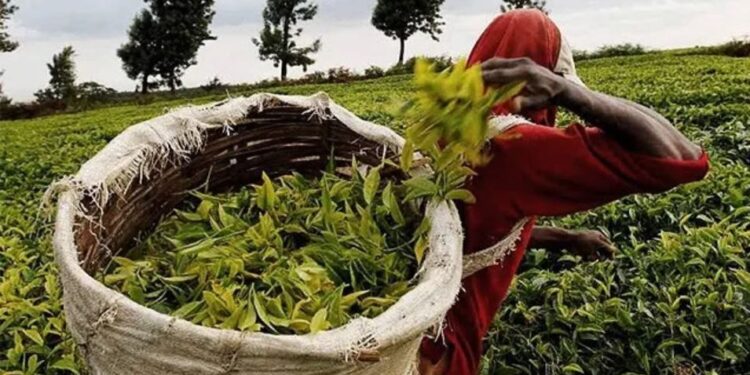Kenya is set to benefit from a Ksh13.2 billion ($100 million) investment by China’s Benny Tea Industries as part of a broader effort to expand the country’s tea exports to the Chinese market. The announcement follows a high-level meeting between President William Ruto and executives from the Chinese firm, one of the top three tea producers in China. The investment is expected to establish modern tea processing and packaging factories in key tea-growing counties, strengthen Kenya’s value addition capacity, and enhance access to new international markets.
At the heart of this new engagement lies a shared vision: to increase Kenya’s export of orthodox and specialty teas to the Chinese market, while attracting substantial foreign direct investment into Kenya’s value addition capacity. Benny Tea Industries, ranked among the top three tea companies in China, has committed to sourcing its orthodox tea requirements from Kenya and investing up to $100 million to establish modern processing factories in Kenya’s tea-growing counties. This is a decisive pivot from exporting raw tea to a model that includes local processing and branding—adding both value and resilience to the sector.
For Kenya, this is more than a bilateral trade agreement. It is a blueprint for transforming a vital national industry. The tea sector accounted for Ksh180.57 billion ($1.22 billion) in export revenue in 2024 and supported over 750,000 smallholder farmers. Yet, despite these impressive figures, the industry has faced challenges in recent years—global price volatility, stiff competition from other tea-producing countries, and limited access to premium markets due to stringent certification standards. The average auction price of Kenyan tea dropped from $2.68 per kilogram in early 2022 to $2.25 in September 2024, highlighting the urgency for innovative interventions.
President Ruto’s administration is responding with a comprehensive strategy: boosting production, opening new markets, and driving value addition. The partnership with China addresses each of these pillars. By expanding Kenya’s tea export volume to China from 12.42 million kilograms in 2024 to a targeted 50 million kilograms by 2030, the country is not only diversifying its market base but also buffering against price shocks in traditional markets.
Moreover, the tax-free export of packaging materials from China to Kenya and the promise of setting up local packaging factories create a win-win scenario. For Chinese investors, Kenya becomes a strategic base for serving broader regional and global markets, particularly given the export hurdles posed by U.S. tariffs. For Kenya, this means job creation, skills transfer, and the development of a modern packaging industry—all crucial steps in strengthening the country’s agribusiness ecosystem.
The positive ripple effects of this partnership extend well beyond the factories. For smallholder farmers like Samuel Kariuki, who manage tea operations at the grassroots level, the shift toward direct international sales and value-added exports opens new avenues for income and market stability. The Kenyan government’s decision to allow factories to sell directly to global buyers eliminates layers of intermediaries, enabling farmers and processors to retain a larger share of export revenues.
Furthermore, investment in modern equipment tailored to the standards of the Chinese market—known for its discerning tea consumers—will elevate the overall quality of Kenyan tea. This aligns perfectly with the global shift towards traceable, sustainable, and premium-grade agricultural products. While meeting international certifications such as Rainforest Alliance or fair trade remains a financial hurdle for many farmers, the scale and structure of Chinese demand could offer a more accessible and consistent growth path.
Kenya’s broader trade positioning also strengthens the case for optimism. Through frameworks such as the African Continental Free Trade Area (AfCFTA) and the African Growth and Opportunity Act (AGOA), Kenyan tea producers have preferential access to major markets. Under AfCFTA, the elimination of intra-African tariffs facilitates exports to emerging consumer markets across the continent, where Kenya is already exporting tea to destinations like Ghana. AGOA, meanwhile, allows duty-free access to the U.S. market, offering Kenyan tea a pricing advantage and encouraging quality upgrades and branding.
In parallel, Kenya is improving its domestic tea marketing environment. The abolition of the $2.34 minimum reserve price at the Mombasa Tea Auction has helped reduce unsold tea stockpiles, improving liquidity and market responsiveness. This reform, coupled with new international partnerships, marks a significant policy shift towards making Kenyan tea more competitive on a global scale.
This vision for a revitalized tea industry reflects President Ruto’s broader economic agenda—one that prioritizes value addition, job creation, and export diversification. It is a strategic shift from commodity dependence to market intelligence and brand differentiation. By anchoring growth in partnerships like the one with Benny Tea Industries, Kenya is not only securing market access but building an ecosystem that can support sustained agricultural modernization.
The implications for the Kenyan economy are substantial. Increased foreign investment brings not only capital but also innovation and market insight. Modern packaging and processing facilities mean Kenya can offer finished products that fetch higher prices abroad. The promise of technology transfer ensures that Kenyan workers and entrepreneurs are not left behind but are equipped to thrive in the evolving global agribusiness landscape.
In sum, the Kenya-China tea partnership is a decisive step forward—one that celebrates Kenya’s agricultural heritage while steering its tea industry into a future defined by quality, value, and global reach. For the farmers tilling the hills of Kericho, Embu, and Meru, this moment offers more than hope. It offers a tangible pathway to better incomes, stronger communities, and a place of pride in the global marketplace.
Kenya’s foreign exchange reserves have climbed to a historic high of nearly $10.59 billion, according to the latest financial markets bulletin released by the Central Bank of Kenya...
Read moreDetails









